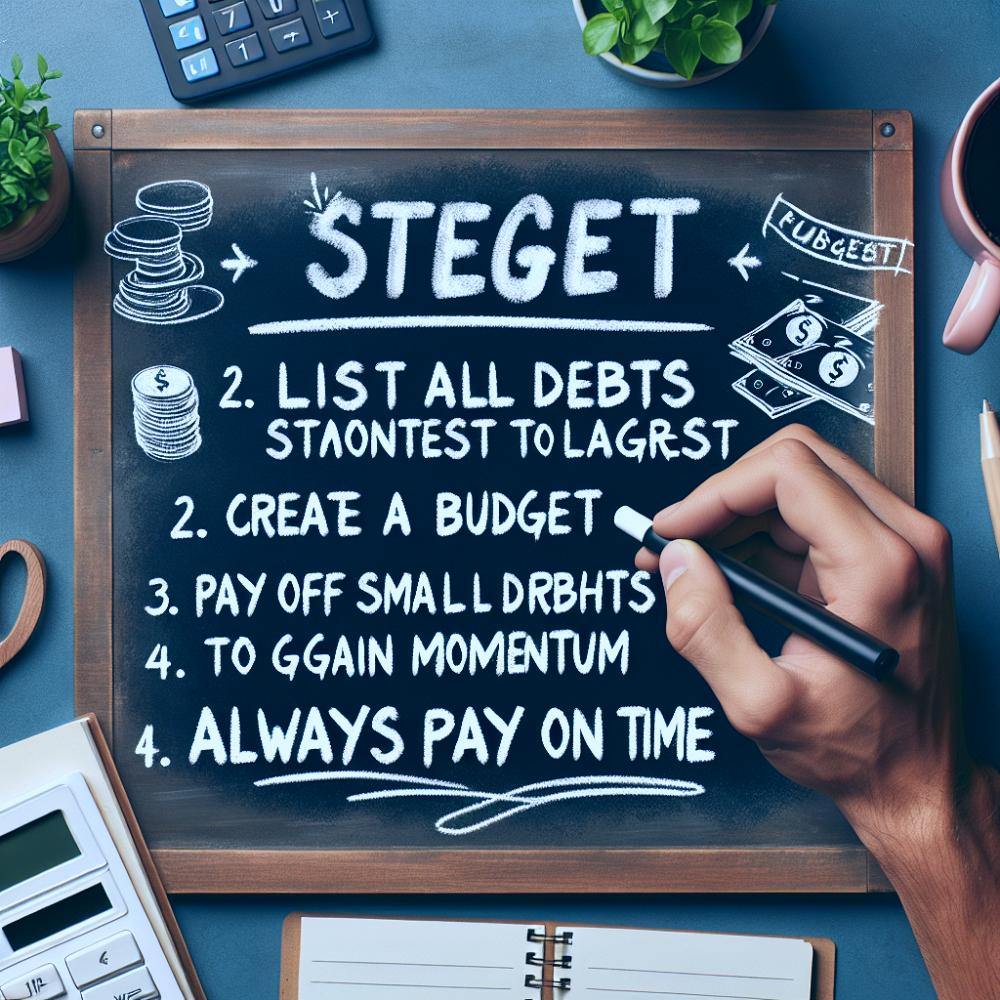
Introduction
Debt can feel like a mountain that's impossible to climb. However, with the right strategy, determination, and discipline, it's possible to eliminate your debt efficiently and regain your financial freedom. In this article, we will explore various strategies that can help you pay off your debt effectively.
1. The Snowball Method
This strategy involves paying off your debts starting from the smallest balance to the largest, regardless of the interest rate. The idea is that small wins at the beginning will motivate you to pay off larger debts. Make minimum payments on all your debts except the smallest one. Put as much money as you can into paying off the smallest debt until it's gone, then repeat the process with the next smallest debt.
2. The Avalanche Method
This method focuses on paying off the debt with the highest interest rate first, hence saving you money over time. Make minimum payments on all your debts, then use any remaining money to pay off the debt with the highest interest rate. Once that debt is paid off, move on to the one with the next highest interest rate.
3. The Stack Method
The Stack Method is similar to the Avalanche Method, but instead of focusing on interest rates, it focuses on the total balance of each debt. You start by paying off the smallest balance first, then move on to the next smallest, and so on. This method can be beneficial if you have multiple debts with similar interest rates.
4. Debt Consolidation
Debt consolidation involves taking out a new loan to pay off your existing debts. The goal is to get a lower interest rate on the new loan, which can save you money in the long run. It also simplifies your payments by combining multiple debts into one monthly payment.
5. Balance Transfer
A balance transfer involves moving your debt from a credit card with a high-interest rate to one with a lower rate. Many credit card companies offer introductory periods with 0% interest, giving you time to pay off your debt without accruing additional interest.
6. Debt Settlement
Debt settlement involves negotiating with your creditors to pay a lump sum that is less than the total amount you owe. This can be a viable option if you have a significant amount of debt and are unable to make minimum payments. However, it can negatively impact your credit score.
7. Bankruptcy
Bankruptcy should be considered as a last resort. It can provide a fresh start by discharging some or all of your debts, but it also has severe consequences, including a significant impact on your credit score.
Conclusion
Eliminating debt requires a plan and discipline. It's essential to review your finances carefully, choose the strategy that best fits your situation, and stick to the plan until you are debt-free. Remember, it's not about the speed, but the consistency of your efforts.
No matter how overwhelming your debt may seem, it's important to remember that it's not a life sentence. With the right strategy and a commitment to your financial health, you can efficiently pay off your debt and enjoy the freedom that comes with financial stability.



















